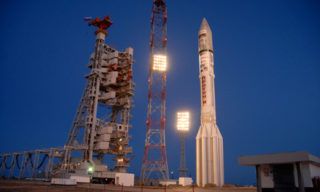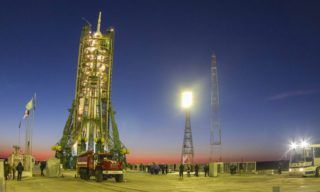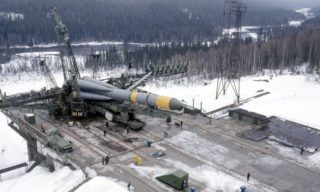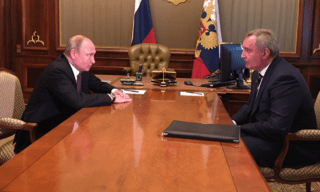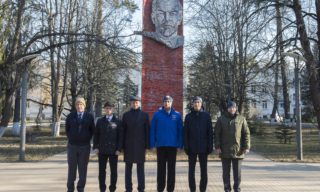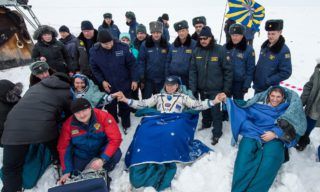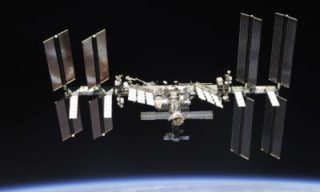Operations on Soyuz TMA-16M manned spacecraft redocking from Poisk small research module to Zvezda service module of Russian ISS segment are scheduled for August 28 and will be accomplished in the manual mode, – Mission Control Centre reports.
“The aim is to release docking node of Poisk small research module to receive Soyuz TMA-18M spacecraft with ISS-45 mission crew onboard to be launched on September 2”.
According to the specialists’ calculations ISS crew will be redocking Soyuz TMA-16M in manual mode in the period from 10.09 to 10.34, Moscow time.
Latest news:
Jul 2, 2025
-
This error message is only visible to WordPress admins
Error: API requests are being delayed. New posts will not be retrieved.
There may be an issue with the Instagram access token that you are using. Your server might also be unable to connect to Instagram at this time.
Error: API requests are being delayed for this account. New posts will not be retrieved.
There may be an issue with the Instagram access token that you are using. Your server might also be unable to connect to Instagram at this time.
Categories
- Angara (43)
- Astronomy (9)
- Baikonur Cosmodrome (520)
- Brazil (1)
- China (4)
- CrewDragon (4)
- Defenсe (47)
- ESA (119)
- Falcon (2)
- Featured article (12)
- GCTC (222)
- Guiana Space Centre (17)
- History (59)
- India (1)
- ISS (550)
- JAXA (49)
- Johnson Space Center (3)
- Khrunichev State Research and Production Space Center (63)
- Mars (8)
- MCC (85)
- Moon (21)
- NASA (206)
- Plesetsk Cosmodrome (84)
- Progress (233)
- Proton (137)
- Roscosmos (645)
- ROSS (4)
- RSC Energia (94)
- Russia (755)
- Satellites (232)
- Science (137)
- Soyuz (550)
- Space (472)
- Spacewalk (72)
- SpaceX (6)
- Star city (67)
- Starliner (7)
- Tourism (27)
- USA (72)
- USSR (1)
- Vostochny Cosmodrome (69)
- Zero Gravity (12)





